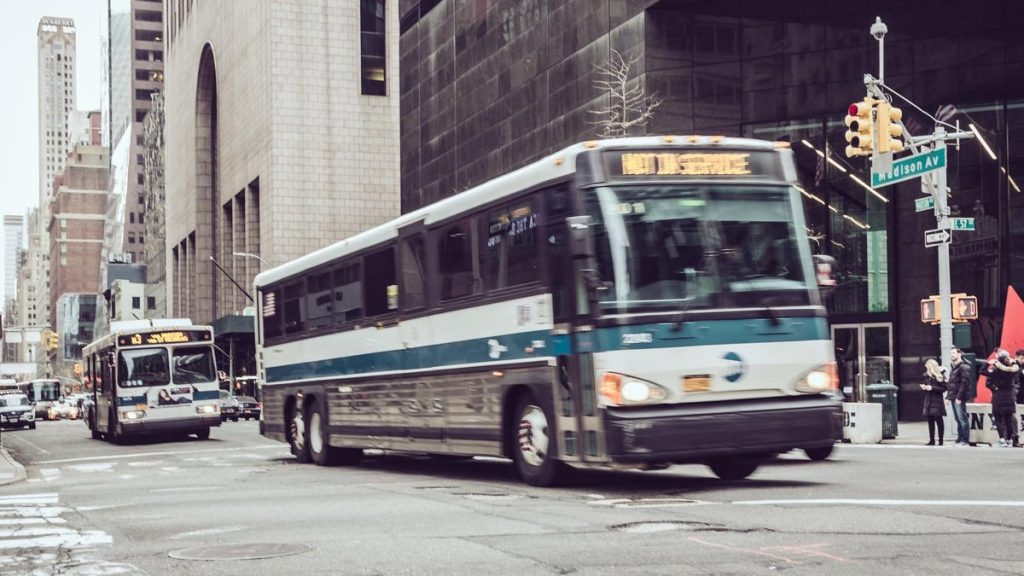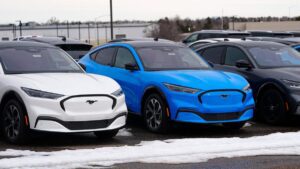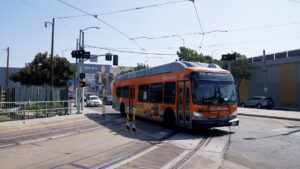Should Public Transit Be Free for Everybody? The Answer Is Complicated

New York City buses on 5th Avenue, January 2017.Photo: kolderal (Getty Images)
Over the past few years, it feels like more cities, governments and citizens are re-examining the public policy around cars and public transit. Cities are investigating congestion pricing and eyeing mandatory speed restrictions to combat two huge issues: Skyrocketing gridlock, and a worrying rise in vehicular deaths. Amid all of this, one compellingly simple suggestion keeps popping up: Why not make public transit free for everybody? Freakonomics Radio delved into the topic, and as with most seemingly simple things, the idea of free fare comes with a lot of unexpected side effects.
In the latest Freakonomics episode, which you can find here in podcast form, the hosts speak with politicians, advocates, academics and bureaucrats to get to the heart of the question: Who would benefit from free-for-everybody public transit, and would anybody be harmed?
The benefits of free-to-ride public transit can be enormous. Freakonomics spoke with Boston mayor Michelle Wu, who is pushing to make Boston’s city buses free to ride. “We know that the foundation for equitable access to opportunities is connectedness, the ability to get around,” Wu said on the show. “A 2015 longitudinal study […] showed that the factor most closely linked to a family’s ability to rise out of poverty, in fact, wasn’t the test scores of schools in the area, it wasn’t the public safety statistics. In fact, it was the average commute time to work.” Wu points to research that showed, when low-income families were given a 50-percent discount on public transit fares, on average their use of transit increased by 30 percent. “And it turns out that people were using the transportation for basic life necessities,” Wu said. “To get to their medical appointments, to get to the grocery store, all things that they had previously been rationing because it was just one more cost that you had to undertake.”
That’s the argument in favor of free fares: Easier, less costly access to public transit can help counteract inequality and boost the quality of life for low-income citizens. But in certain instances, fare-free transit could stand to benefit wealthier people — in effect, transferring a benefit to people who are less likely to notice the cost difference.
The San Francisco Bay Area provides Freakonomics with a great example. Brian Taylor, a professor of urban planning and public policy and the director of the Institute of Transportation Studies at UCLA, explains how fare-free transit could actually benefit wealthy residents most. As he explains, when it comes to the Bay Area Rapid Transit (BART) system, “those peak-hour, peak-direction commuters […] going downtown in the morning have higher incomes than the average driver…. [I]t’s just transferring a benefit to very high-income commuters.”
G/O Media may get a commission
ThisWorx Cordless Car Vacuum
Suck it up
Only 2.4 pounds, has a 60w motor for powerful suction, has a lithium battery that can store charge for up to 18 months, which means you can leave it in the car, and it even comes with different heads for different uses as well.
The whole Freakonomics episode is well worth a listen, delving into numerous other topics surrounding transit — like the fact that, in most public transit systems in the U.S., passenger fares contribute as little as 10 percent to the system’s annual budget (the rest comes from federal grants). If the fare box only covers one tenth of the cost of operation, why not eliminate the fare box and find 10 percent savings elsewhere? And there’s a fascinating discussion about how society, at least in the U.S., readily absorbs the externalities of personal private vehicle travel, while stridently refusing to do the same for other forms of transportation. Go check out the podcast episode here.



